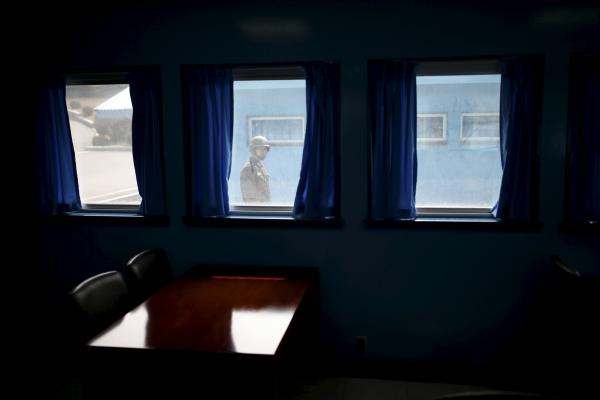SEOUL, April 22 – For the 2nd time now, North Korea offered on Friday to send to Seoul the families of a group of restaurant workers who according to state media, it says were abducted to the South, after South Korea rejected the first approach.
13 North Korean workers at a restaurant run by the North in China had defected two weeks ago, where North Korea saw the case as the first of its kind, where it accused South Korea of a “hideous abduction”. The chairman of the North Korean Red Cross said in a statement that the families of the abductees are keenly requesting for face-to-face contact with their daughters as they were obliged by force to part from their beloved daughters. Adding; “At their earnest requests, our side again seriously notifies your side of our decision to send them to Seoul via Panmunjom.”
A truce ending the 1950-53 Korean War was signed in Panmunjom, the inter-Korean border village on the demilitarized zone where North and South Korea hold rare joint meetings and rival soldiers stand face-to-face in the world’s most heavily fortified border, a place of a peace treaty.
In other words, North and South Korea remain technically at war, however stuck somehow in a prolonged period of exchanged rhetoric and heightened tension.
North Korea has adopted a different strategy under leader Kim Jong Un when it comes to defectors, displaying re-defectors on national television and bringing the families of defectors to Panmunjom.
7 of the restaurant workers cried as they explained how their colleagues got deluded, noting that these 7 are of those who did not defect and returned to Pyongyang were paraded in front of a CNN reporter on a trip to the isolated country this week.
South Korea’s unification ministry said in a statement, reiterating comments from Thursday in response to North Korea’s first offer to send the families to the South, that the defection took place according to the workers’ “free will” and dismissed the offer as propaganda.
“(The offer) is unacceptable, considering their hopes, free will, and international customs concerning humanitarian issues,” it said.
About 29,000 people have fled North Korea and arrived in the South since the war, including 1,276 last year, with numbers declining since a 2009 peak. In the first quarter of this year, 342 North Koreans arrived in the South.
